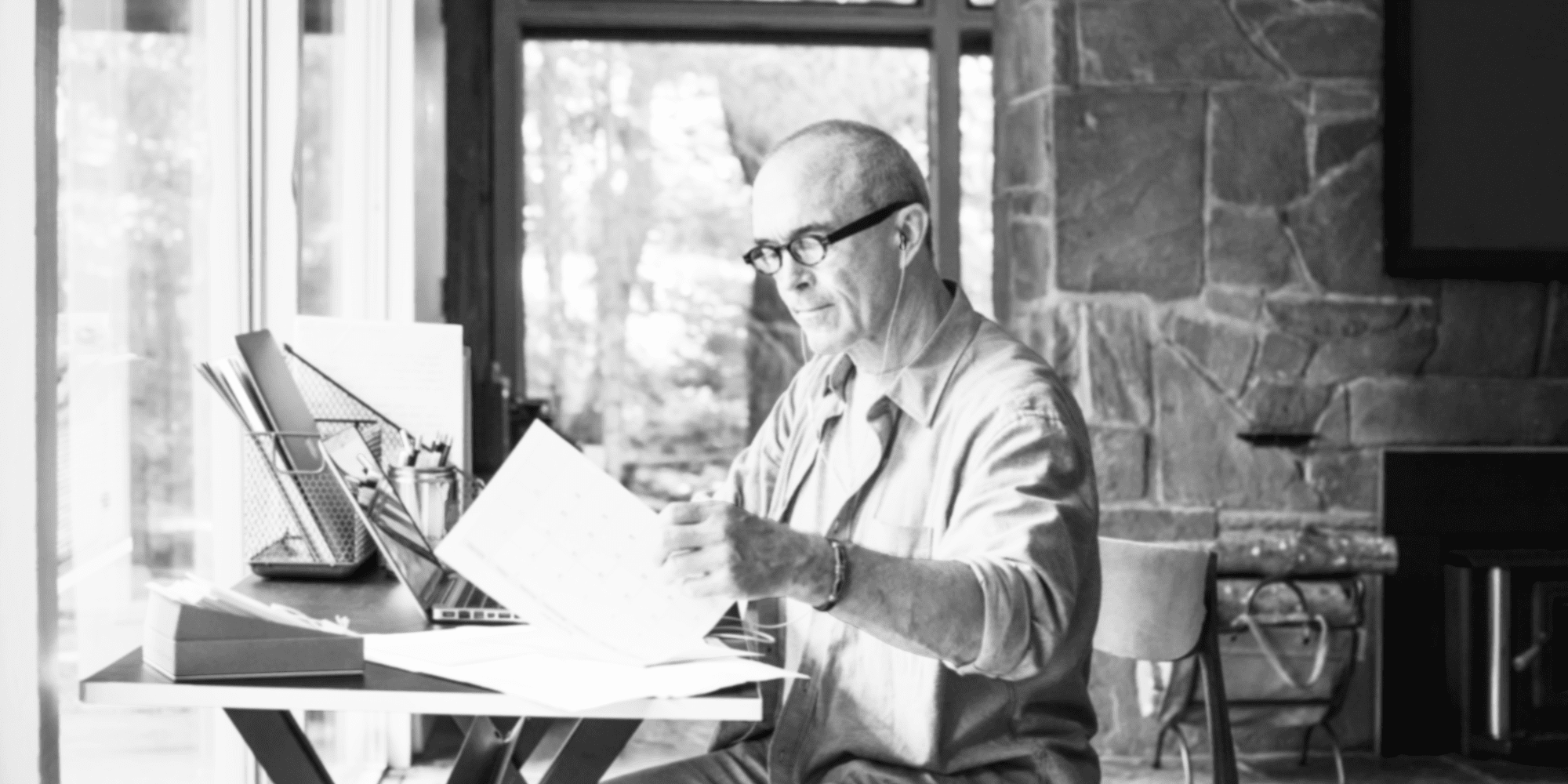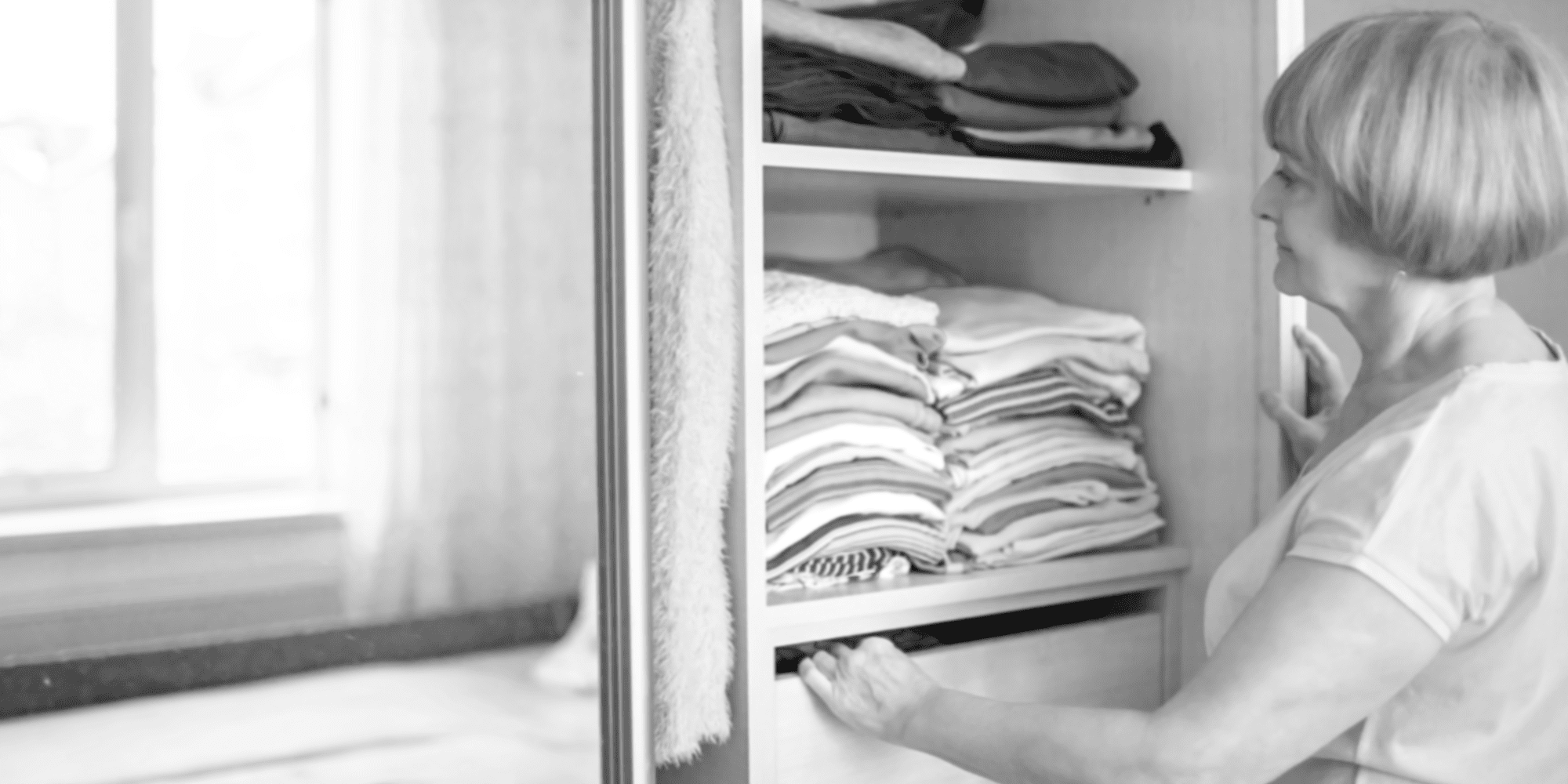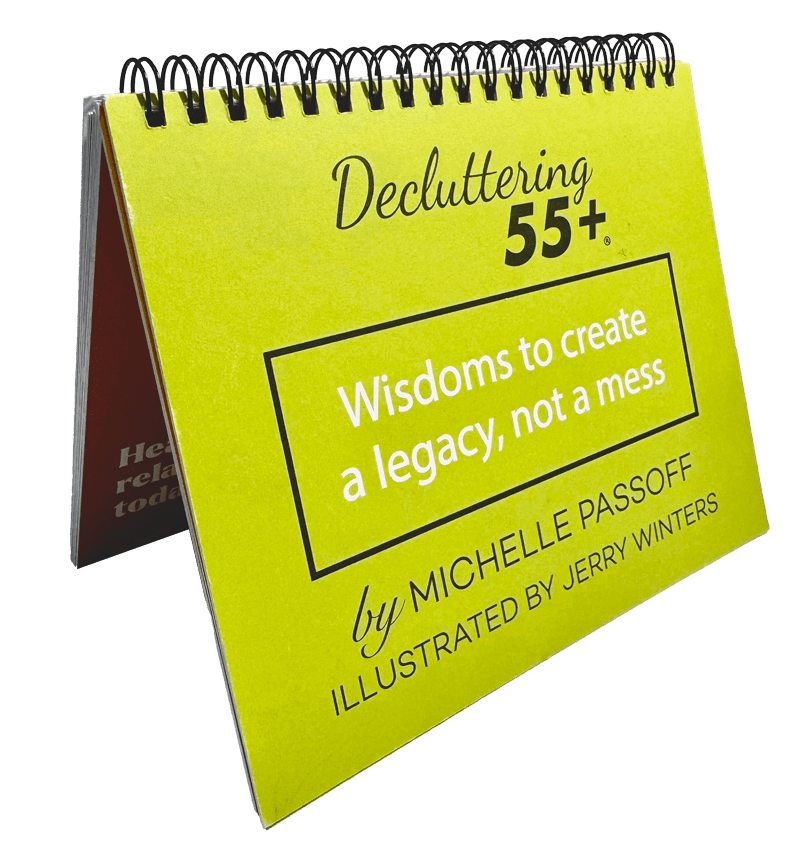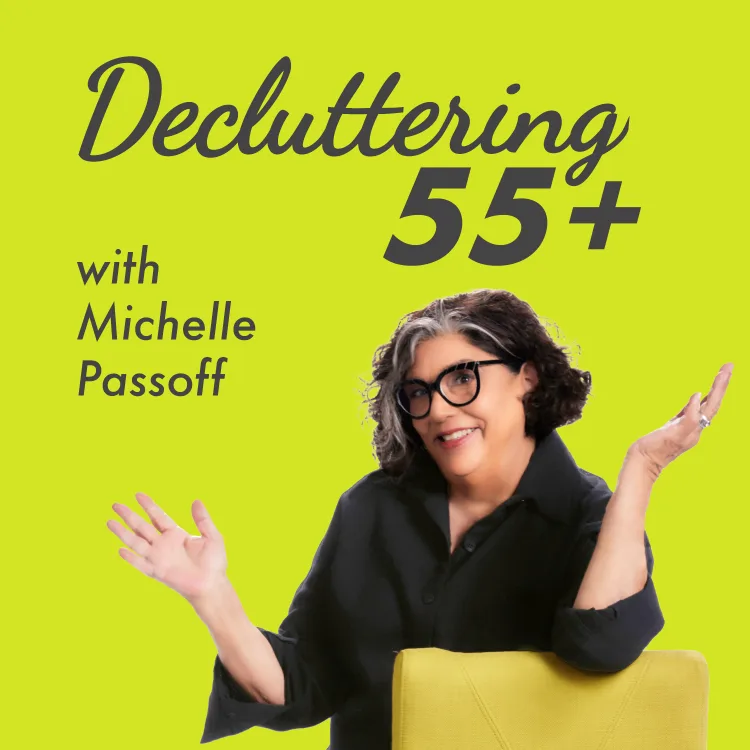




"Action is the only thing that makes a difference"
What is
Decluttering 55+?
“Decluttering 55+® is a hub for all kinds of conversations about “conventional” and “next level” clutter, Conventional clutter is too much physical ‘stuff’ including papers, clothes and paraphernalia. “Next level” clutter is areas of life that are baffling or confronting on the road ahead for Baby Boomers.
This includes:
- Resetting health, fitness and exercise regimens
- Taming the digital clutter
- Revisiting relationships
- Telling your life story
- Deciding where to live and what to do next in life
- Getting your financial house and legal matters in order
- Pre-planning your final arrangements
Through our books, podcasts, blogs, classes, consulting, and speaking engagements, we encourage and facilitate conversations that empower and enable the 55+ crowd to learn new things, get in action, and get things done.
-Michelle
Get Involved

Decluttering 55+®
Books
Decluttering 55+ ® : Wisdoms to create a legacy, not a mess by Michelle Passoff, is a tool to prompt you to learn new things, get in action, and get things done!

Decluttering 55+®
Podcast
Decluttering 55+ ® with Michelle Passoff, is a weekly 20-minute conversation with experts that helps straighten things out!
Speaking
Michelle Passoff has entertained and educated audiences around the globe on the virtues of cleaning clutter as a path of productivity and fulfillment for than 35 years.
Classes
Expect a lot of ‘ah-ha’ moments in live and online classes. Here we establish priorities, set goals, let go of negative beliefs, schedule actions, get help and get things done.
Consulting
Decluttering 55+ ® provides hands-on or online training to help you let go of too much ‘stuff’ or to move and manage “next level” clutter projects.
Who is
Michelle Passoff?
When Michelle Passoff chose to attend Syracuse University’s Newhouse School of Communications, it wasn’t because she longed to be a journalist. She knew that having writing skills would enable her to share her experience of life such that it would make a difference for others. She never imagined that the lessons learned could be taught through cleaning clutter and writing books, speaking and consulting all over the world on the topic.
Passoff grew up in a glass house her father chose from the cover a magazine when his family of five children outgrew the two- bedroom cottage on a lake where they all lived in New Jersey. “People who live in glass houses can’t have clutter”, says Passoff, “Some of her best lessons on cleaning clutter came from her mother.”
Later, when Passoff was working on Madison Avenue as a media specialist for public relations agencies ,she was simultaneously taking ‘new age’ classes on personal development. She learned some of her best clutter cleaning skills there – how to move and manage life so that goals could be achieved without obstructions.
When Michelle got a call from a friend who had enlisted a team of her pals to come help clean her apartment because it was so cluttered that her landlord threatened eviction, a lightbulb went off and her past met her future. She realized that she knew exactly how to get her friend out of the mess. She went home, used all of her marketing skills to create posters advertising clutter cleaning services and she hung them on bus stops up and down Broadway. Business started to boom. Soon after, she a created a class and started teaching at a lifelong learning school in downtown Manhattan,
The morning after she delivered one of her classes, Michelle got a call from a student who identified herself as a writer for The New York Times. She wanted a private consultation for an article she was writing. The morning that the article hit newsstands, Passoff had calls from a literary agent and a publisher. The fulfillment of her goal to write what she learned in life so others would benefit was launched.
Passoff is the author of “Lighten Up! Free Yourself From Clutter (HarperPerennial) and “Decluttering 55+: Wisdoms to create a legacy, not a mess”. She is also the host of the podcast, Decluttering 55+ with Michelle Passoff.



